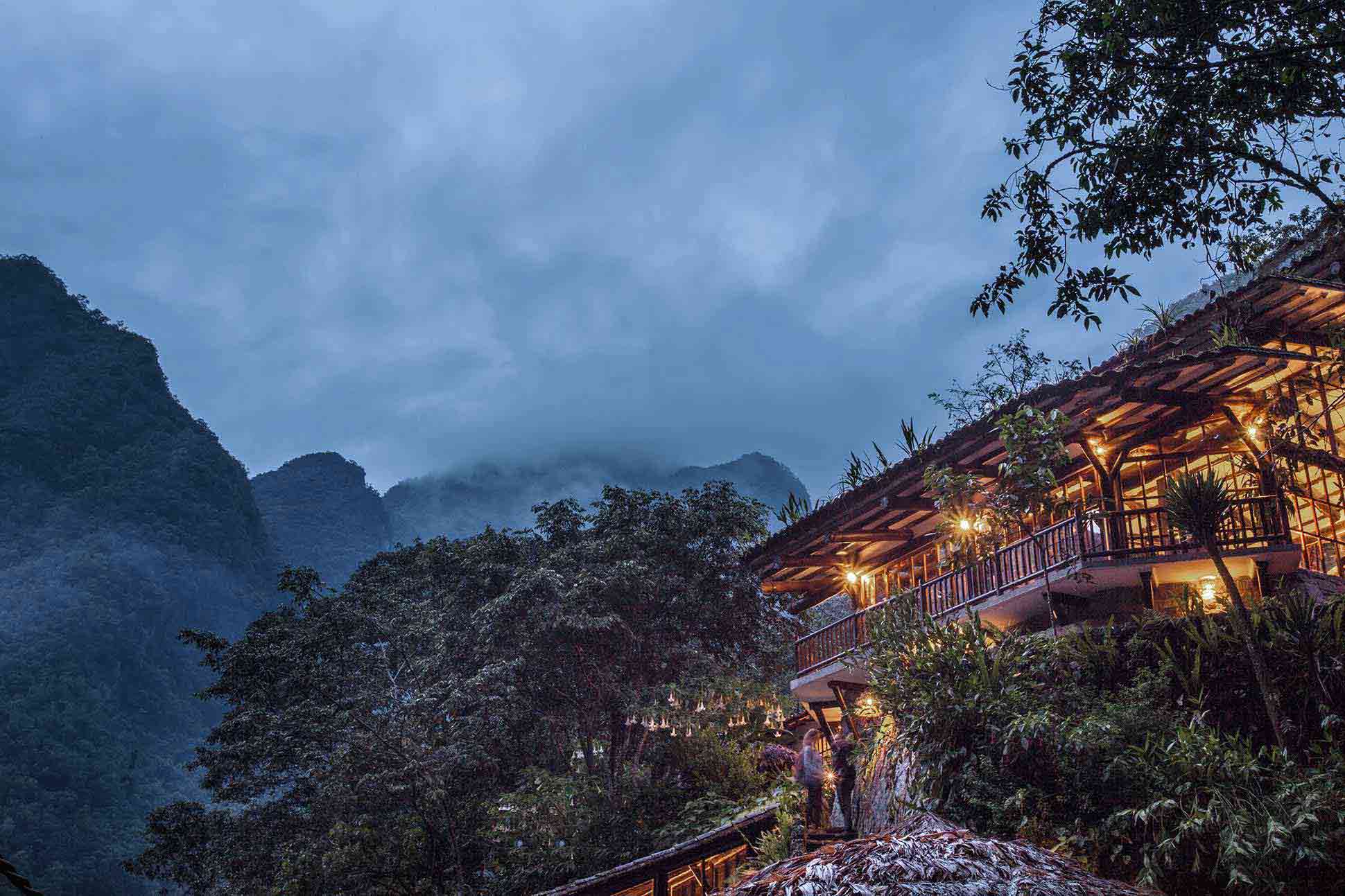When it comes to conserving biodiversity, it seems that education is a big challenge in Peru. José is committed to raising environmental awareness among the local communities. With employment low in rural areas, earning an income through illegal mining and logging is inevitably a means for survival. But by offering a lifeline through eco-tourism (which involves hospitality, field guidance, sustainable agroforestry and even niche markets such as birding), he believes that he can offer career opportunities to the local population. It is also an effective way to reduce migration and it helps to preserve local cultures.
“We have always stressed the importance of protecting the local community and culture as part of a good eco-tourism business model. There is a difference between employing locals to do jobs within a hotel and actively investing in their training and development. Many of our hotels are now run by hotel managers who joined Inkaterra years ago as guides and through experience and training, they have learned the skills which equip them to operate the hotels, and fuel their love of the environment” he adds.
I had never thought about cultural preservation in the sustainable tourism model. But José enlightened me as to how this works, by demonstrating some of the things he does with local communities through Inkaterra. For example, he is an ardent protector of cultural practices and artisanal crafts across his projects, which are indigenous to the various regions of Peru. Inkaterra also recently hosted the Momento Andes last year in Urubamba, in collaboration with renowned chef Virgilio Martínez, which brought together local and international farmers, chefs, academics, artists and craftsmen to participate in a series of workshops to share their skills and enhance the understanding of traditional Peruvian farming and cuisine.
Also, through careful work with a group of artisanal fishermen in the Cabo Blanco area of Northern Peru, who use an ancient fishing technique, all of Inkaterra’s restaurants will now be supplied with sustainably-sourced fish, caught by hand with a ‘Sea to Table’ traceability certificate. It seems that celebrating these ancient techniques and giving them a platform in modern-day tourism is very important to José and the brand.
But the most significant part of the whole model is actually about the eco-system. Without understanding the environment (literally) in which you are operating, eco-tourism becomes nothing more than marketing fluff. So it’s crucial that scientific research forms the basis of determining conservation initiatives.
“Flora and fauna inventories are key, as these allow us to measure our long-term impact over natural areas and share data with not just our team, but academics across the world. This way, I can also positively tell you about the numbers of new species that are thriving in the area around our properties. Birds and wildlife are flourishing, new varieties of orchids are found and insects that were previously thought to be lost are returning,” says José.
Of course, all of this is easier said than done. It takes great commitment and determination to make such projects work. Plus one needs to surround oneself with a dedicated team of passionate, like-minded people; and constantly be on-brand so that the message gets passed on. Also, efficient hotel design and everyday operation is crucial in minimising the impact on the environment.
“On a day to day basis, you have to embrace green practices – reduce the use of plastic wherever you can, use renewable energy, recycle as much water and waste as possible – all of these will help reduce any negative impact on the environment. But to be honest, this is the easy bit.”
José tells me that working with a sustainable supply chain is also crucial, not just for the environment but also for long-term profitability. So finally, the dirty word in sustainability, ‘profit’ just reared its head.
José senses my change in mood. “When we began, eco-tourism was an undiscovered concept and over the past four decades, through careful management, we have shown that this sustainable business model can actually be profitable. But most important in all of this is giving back. So our NGO, funded by the profits made by Inkaterra hotels, supports and sustains our key conservation projects. If we didn’t make any profit through eco-tourism, then there would be no conservation project at all.”
Profit is not just monetary either. Success for an eco-tourism project comes in different forms – in the goodwill and opportunities for local communities; in sustaining of old practices in a modern way; in inspiring other entrepreneurs and communities to see that development can be sustainable; and in reaching out to the wider world and hundreds of thousands of travellers – particularly people with influence and affluence, to highlight the fact that we need to do all we can to help save the world. And all this is particularly poignant at a time when the current US administration is openly denying the impact of human influence on climate change and actively pursuing pro-carbon strategies. It seems that tourism can really be a force for good through social and environmental activism.
Travellers are responding accordingly. There is a marked increased in interest in ecological issues among luxury vacationers as a whole, not to mention our very own OutThere travellers. They are making conscious decisions to book with companies that work to improve the situation. Concepts like Inkaterra bind luxury with allowing travellers to comfortably and easily access remote, bio-diversity-rich environments in an authentic way.
“It is an appealing approach for experiential travel, adventure travel, academic tourism, honeymooners or family travel, as well as for niche markets such as birding, orchid observation and gastronomy. Many will even ask what they can do to contribute on a day-to-day basis, showing that there is a real concern and understanding that changes need to be made,” says José.
I like the idea of travel being a force for good when it comes to sustainable tourism. It seems we are sometimes so engrossed in the nitty-gritty of environmental protection, that we forget about the bigger picture. In our busy lives, in our big cities, it is hard to think about the impact that our actions have on the environment, because we are really quite disconnected from it all. But by travelling to diverse eco-systems on holiday, we can see it all for ourselves, up close and personal. Only then will we fully know what it is that we must fight incredibly hard to protect.
Since 1975, Inkaterra has been at the forefront of eco-tourism and sustainable development in Peru, dedicated to authentic travel experiences, aiming to preserve biodiversity and local cultures.
Photography courtesy of Inkaterra






